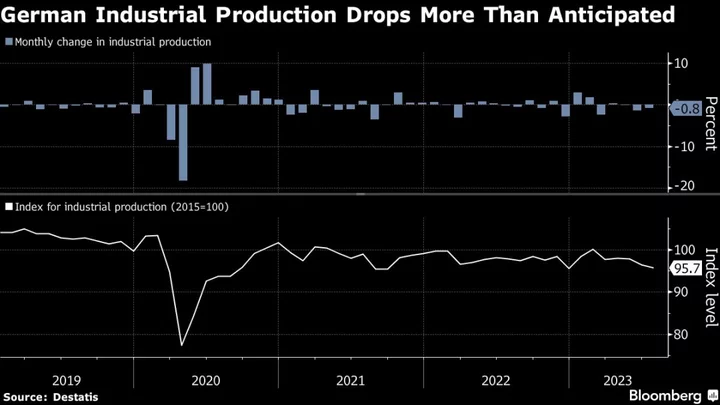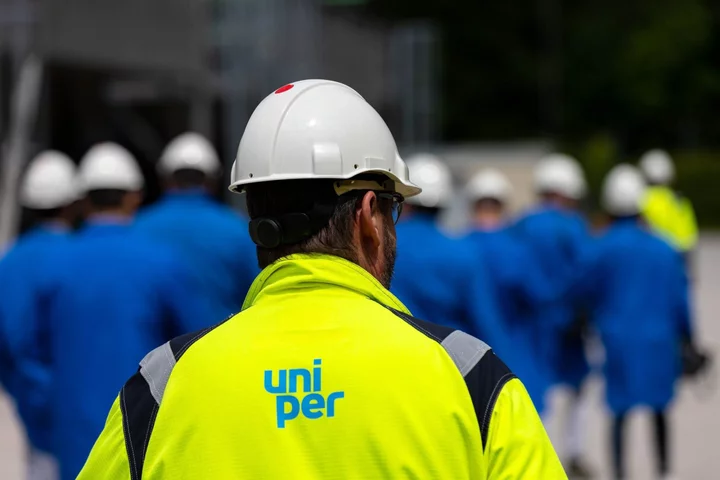China has asked its largest technology companies to provide case studies of their most successful startup investments in consumer, telecom and media companies, a sign authorities are ready to grant them broader leeway in backing such deals after a crackdown brought them to a virtual halt two years ago.
Companies including Tencent Holdings Ltd. and Meituan received the requests from China’s Ministry of Commerce and the National Development and Reform Commission, people familiar with the matter said, asking not to be identified discussing private information.
Earlier requests for case studies on the robotics and semiconductor industries were followed by a rare post by NDRC — the nation’s powerful economic planner — on its official WeChat account highlighting investments by the two companies as being aligned with China’s goals.
While authorities didn’t spell out their reasons for requesting the new case studies, any broadening of the types of investments looked upon favorably by regulators would mark a significant step toward reversing a crackdown on “disorderly capital” that helped erase hundreds of billions of dollars of market value from China’s tech giants since 2021.
Xi Jinping’s government has taken several steps to rebuild confidence in the private sector in recent weeks, including by ending regulatory probes into Tencent and Jack Ma-backed Ant Group Co. The moves have helped spur stock-market gains, though it’s far from clear that a recovery in private-sector confidence can be sustained given continued worries over the risk of abrupt shifts in government policy.
Read More: China’s Tech Crackdown Is Ending. What Does It Mean?: QuickTake
Regulators requested information on the investments including their ownership structure and whether it involves foreign capital, as well as potential economic and social benefits such as how the investment serves goals including carbon neutrality, rural revitalization and common prosperity, one of the people said.
The selected firms in the tech giants’ portfolios must be in compliance with relevant regulations and have no record of violations, the person said.
Representatives for Meituan, the Ministry of Commerce, NDRC and Tencent didn’t respond to requests for comment.
China is courting private-sector companies as it looks to rescue its sputtering post-Covid economic recovery. China Securities Regulatory Commission Vice Chairman Fang Xinghai met with some global venture capital and private equity firms to hear their worries about investment in the country, Bloomberg News reported last week.
Read More: China Addresses Investor Concerns in Global Fund Meeting
Encouraging Chinese tech firms to back consumer-facing companies would represent a pivot from the government’s guidance of the past few years. In December 2021, the Communist Party’s top decision makers in a briefing following a key annual conference reined in their language around the disorderly expansion of capital. The briefing introduced a red-light, green-light metaphor indicating how the state would seek to guide the private sector’s investment decisions.
Beijing has firmly steered investors toward bets on technologies it views as key battlegrounds with strategic rivals such as the US. Joe Biden’s administration is planning to further tighten existing curbs by restricting inflows into China’s semiconductor, quantum-computing and AI sectors, Bloomberg News reported this month.
Read More: China Asks Banks to Bankroll Tech in Latest Private Sector Boost
Tech firms in particular have heeded Beijing’s call to develop AI, a technology with far-reaching implications for the economy and national interests. Tencent-backed Shanghai Enflame Technology Co., which develops artificial intelligence chips, and Rongxin Semiconductor Ningbo Co., a wafer-level packaging and testing operator Meituan invested in, are among the companies NDRC mentioned in its WeChat post. Alibaba Group Holding Ltd. was also praised for its investment in e-commerce platform Huitongda Network Co.
Some Chinese tech companies that once operated like venture capital firms have cooled on the strategy in recent years. ByteDance Ltd. dissolved its venture capital and investing team and was set to radically overhaul its separate strategic investments arm, people familiar with the matter said last year. Alibaba said in May that its plan to break up the company into six different units will involve dispatching about half of its investment team to the various businesses.
--With assistance from Sarah Zheng, Jane Zhang, Yujing Liu and Fran Wang.









